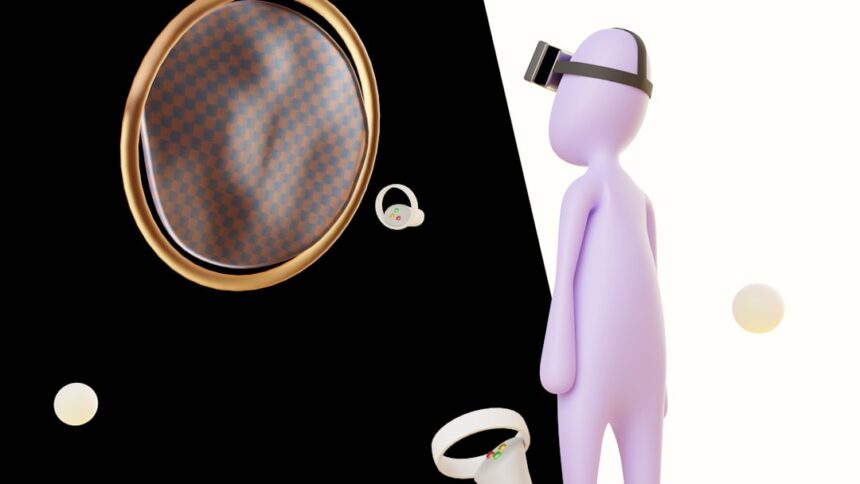Depersonalization and derealization are complex psychological phenomena that can leave you feeling detached from your own thoughts, feelings, or sense of self. When you experience depersonalization, it may feel as though you are an observer of your own life, as if you are watching yourself from a distance. This sensation can be disorienting and unsettling, often leading to confusion about your identity and reality.
On the other hand, derealization involves a sense of detachment from your surroundings, making the world around you seem unreal or distorted. You might find that familiar places appear strange, or that people seem like mere figures in a dream. These experiences can occur in isolation or together, forming what is known as Depersonalization-Derealization Disorder (DPDR).
While many people may experience fleeting moments of depersonalization or derealization during times of stress or fatigue, those with DPDR often find these sensations persistent and distressing. Understanding these phenomena is crucial for recognizing their impact on your life and seeking appropriate support. The journey begins with acknowledging that these feelings are valid and can be addressed through various coping mechanisms and professional help.
Key Takeaways
- Depersonalization and derealization are experiences of feeling disconnected from oneself and the world around them.
- Signs and symptoms of depersonalization derealization disorder include feeling like an outside observer of one’s thoughts and sensations, and experiencing a sense of unreality.
- Causes and triggers of depersonalization derealization can include trauma, stress, anxiety, and substance use.
- Depersonalization derealization can impact daily life by causing difficulties in relationships, work, and overall functioning.
- Coping strategies for managing depersonalization derealization include mindfulness, grounding techniques, and seeking professional help.
Signs and Symptoms of Depersonalization Derealization Disorder
Recognizing the signs and symptoms of Depersonalization-Derealization Disorder is essential for understanding your experiences. You may find yourself frequently questioning the reality of your thoughts and feelings, leading to a sense of confusion about who you are. This can manifest as a feeling of being disconnected from your body or emotions, as if you are merely going through the motions of life without truly engaging with it.
You might also experience a sense of emotional numbness, where joy, sadness, or anger feel muted or absent altogether. In addition to these internal experiences, you may notice changes in how you perceive the world around you. Objects may appear distorted or out of focus, and familiar environments might seem foreign or dreamlike.
These symptoms can be distressing and may lead to increased anxiety or fear about your mental state. It’s important to remember that while these experiences can be alarming, they are not uncommon among those dealing with DPDR. Acknowledging these symptoms is the first step toward finding effective coping strategies and seeking help.
Causes and Triggers of Depersonalization Derealization

The causes and triggers of depersonalization and derealization can vary widely from person to person. Often, these experiences are linked to significant stressors or traumatic events in your life. For instance, you might find that periods of intense anxiety, depression, or trauma can trigger episodes of depersonalization or derealization.
This response can be understood as a coping mechanism—your mind’s way of protecting itself from overwhelming emotions or situations by creating a sense of detachment. In addition to trauma and stress, certain environmental factors can also contribute to the onset of DPDR. Prolonged exposure to high-stress situations, such as chronic illness or relationship difficulties, can exacerbate feelings of disconnection.
Substance use is another potential trigger; some individuals report experiencing depersonalization or derealization after using drugs or alcohol. Understanding these triggers is vital for managing your experiences and developing strategies to cope with them effectively.
The Impact of Depersonalization Derealization on Daily Life
| Impact of Depersonalization Derealization on Daily Life | Statistics/Metrics |
|---|---|
| Prevalence | 1-2% of the population |
| Age of Onset | Usually begins in adolescence or early adulthood |
| Impact on Functioning | Interferes with work, social activities, and relationships |
| Co-occurring Conditions | Anxiety disorders, depression, and substance abuse |
| Treatment Options | Therapy, medication, and self-help strategies |
Living with depersonalization and derealization can significantly impact your daily life and overall well-being. You may find it challenging to engage in social situations, as feelings of detachment can make it difficult to connect with others. This disconnection can lead to isolation, as you might avoid social interactions out of fear that others will not understand what you are experiencing.
The struggle to maintain relationships can create additional stress, further exacerbating feelings of anxiety and depression. Moreover, the impact on your work or academic performance can be profound.
Everyday activities that once brought you joy may feel mundane or uninteresting due to the emotional numbness associated with DPDR. Recognizing how these experiences affect your life is crucial for seeking support and finding ways to navigate the challenges they present.
Coping Strategies for Managing Depersonalization Derealization
Finding effective coping strategies is essential for managing the symptoms of depersonalization and derealization. One approach is grounding techniques, which help anchor you in the present moment. You might try focusing on your physical sensations—such as feeling the texture of an object in your hand or listening closely to the sounds around you—to reconnect with reality.
Mindfulness practices, such as meditation or deep breathing exercises, can also be beneficial in reducing anxiety and promoting a sense of calm. Another strategy involves maintaining a routine that includes regular physical activity and healthy eating habits. Exercise has been shown to improve mood and reduce stress levels, which can help mitigate feelings of detachment.
Additionally, journaling about your experiences can provide an outlet for processing your thoughts and emotions. By documenting your feelings, you may gain insights into your triggers and patterns, empowering you to take control of your experiences.
Seeking Professional Help for Depersonalization Derealization

If you find that depersonalization and derealization significantly impact your daily life, seeking professional help is a crucial step toward recovery. Mental health professionals can provide valuable support through therapy options tailored to your needs. Cognitive-behavioral therapy (CBT) is one effective approach that focuses on identifying negative thought patterns and replacing them with healthier perspectives.
This type of therapy can help you develop coping strategies and address the underlying issues contributing to your symptoms. In some cases, medication may also be recommended to help manage anxiety or depression associated with DPDR. A psychiatrist can work with you to determine the best course of treatment based on your individual circumstances.
Remember that seeking help is a sign of strength; it demonstrates your commitment to understanding and improving your mental health.
Personal Stories of Living with Depersonalization Derealization
Hearing personal stories from others who have experienced depersonalization and derealization can provide comfort and validation in your journey. Many individuals describe their experiences as isolating yet transformative; they often emphasize the importance of sharing their stories as a means of connecting with others who understand their struggles. You might find solace in knowing that you are not alone in this experience and that many have successfully navigated similar challenges.
These narratives often highlight the resilience that comes from facing such profound feelings of disconnection. Some individuals share how they have learned to embrace their experiences as part of their unique journey toward self-discovery. By connecting with others who have faced similar challenges, you may find inspiration and hope for your own path toward healing.
The Link Between Anxiety and Depersonalization Derealization
Anxiety plays a significant role in the development and exacerbation of depersonalization and derealization symptoms. When you experience heightened anxiety levels, your body enters a state of fight-or-flight response, which can trigger feelings of detachment as a protective mechanism. This response may lead you to feel disconnected from both yourself and your surroundings, creating a cycle that perpetuates anxiety and disconnection.
Understanding this link between anxiety and DPDR is crucial for developing effective coping strategies. By addressing the underlying anxiety through therapy, mindfulness practices, or relaxation techniques, you may find relief from depersonalization and derealization symptoms. Recognizing that these experiences are interconnected allows you to approach your mental health holistically, focusing on both anxiety management and self-acceptance.
Depersonalization Derealization and Substance Use
Substance use can complicate the experience of depersonalization and derealization for many individuals. Some people may turn to alcohol or drugs as a means of coping with their symptoms, seeking temporary relief from feelings of disconnection. However, substance use often exacerbates these symptoms in the long run, leading to increased feelings of detachment and emotional numbness.
If you find yourself using substances as a way to escape from your experiences with DPDR, it’s essential to seek support in addressing both issues simultaneously. Engaging in therapy focused on substance use recovery can help you develop healthier coping mechanisms while also addressing the underlying causes of depersonalization and derealization.
Depersonalization Derealization in the Context of Mental Health Disorders
Depersonalization and derealization often coexist with other mental health disorders, such as anxiety disorders, depression, or post-traumatic stress disorder (PTSD). If you have experienced trauma or ongoing stressors in your life, it’s not uncommon for these feelings of disconnection to arise as part of a broader mental health struggle. Understanding this context is vital for recognizing that DPDR is not an isolated issue but rather part of a complex interplay between various mental health challenges.
Addressing DPDR within the context of other mental health disorders requires a comprehensive approach that considers all aspects of your well-being. Working with a mental health professional who understands this interplay can help you develop an integrated treatment plan that addresses both DPDR symptoms and any co-occurring conditions.
Finding Support and Community for Depersonalization Derealization
Finding support from others who understand what you’re going through can be incredibly beneficial in managing depersonalization and derealization symptoms. Online forums, support groups, or local meetups can provide a safe space for sharing experiences and coping strategies with others who have faced similar challenges. Connecting with a community can help alleviate feelings of isolation while fostering a sense of belonging.
Sharing your feelings with trusted individuals can create opportunities for understanding and empathy while reinforcing the importance of connection in overcoming feelings of disconnection. Remember that seeking support is an essential part of your journey toward healing; it demonstrates strength and resilience in facing these challenges head-on.
In exploring the complex experiences of depersonalization and derealization, it’s essential to consider various perspectives and insights that can deepen our understanding. An article that delves into these phenomena can be found on Unplugged Psychology’s website. This resource provides valuable information on the psychological underpinnings and personal experiences associated with these conditions. For a more comprehensive look at the topic, you can read the related article by visiting Unplugged Psychology. This site offers a range of articles and resources that can help individuals and professionals alike gain a better grasp of these often misunderstood experiences.
LEARN MORE About Unmasking the Mysteries Behind Depersonalization and Derealization
FAQs
What is depersonalization-derealization experience?
Depersonalization-derealization experience is a mental health condition characterized by feeling detached from oneself (depersonalization) and feeling detached from the surrounding environment (derealization). It can be a symptom of various mental health disorders, such as anxiety, depression, and post-traumatic stress disorder.
What are the symptoms of depersonalization-derealization experience?
Symptoms of depersonalization-derealization experience may include feeling like an outside observer of one’s thoughts, feelings, and body (depersonalization), feeling like the world is unreal or distorted (derealization), emotional numbness, and a sense of detachment from one’s own identity.
What causes depersonalization-derealization experience?
The exact cause of depersonalization-derealization experience is not fully understood, but it is believed to be related to a combination of biological, psychological, and environmental factors. It can be triggered by traumatic events, stress, anxiety, depression, and substance abuse.
How is depersonalization-derealization experience diagnosed?
Depersonalization-derealization experience is diagnosed based on a thorough evaluation of the individual’s symptoms and medical history. A mental health professional may use diagnostic criteria from the DSM-5 (Diagnostic and Statistical Manual of Mental Disorders) to make a diagnosis.
What are the treatment options for depersonalization-derealization experience?
Treatment for depersonalization-derealization experience may include psychotherapy, medication, and stress-reduction techniques. Cognitive-behavioral therapy (CBT) and mindfulness-based approaches have been found to be effective in managing symptoms. It is important for individuals to seek professional help for an accurate diagnosis and appropriate treatment plan.




